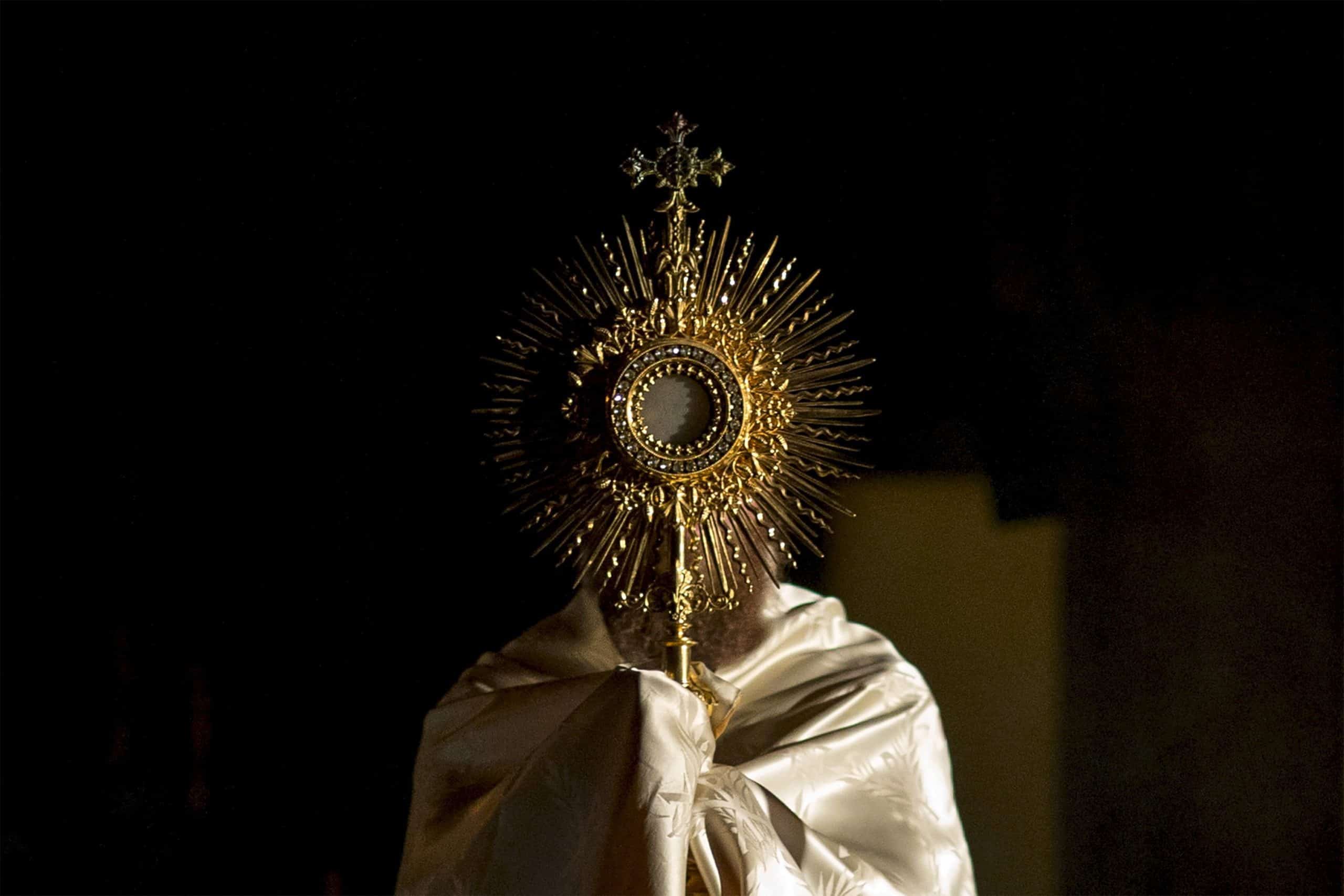The entire purpose of the Christian life is for us to become sons or daughters of God. To say that another way, the whole purpose of the Christian life is for us to become so overwhelmingly loving, so profoundly charitable, that who we are, at our very core, is love. Our life should be so characterized by love that people could most aptly describe our life as an incarnation of love. Everything that we do as Christians is directed toward that end. All of our prayers and fasts, all of our works of mercy and justice, all of our sacraments are directed to transforming ourselves into love incarnate.
Of course, in his earthly life, Jesus Christ himself was, by his very nature, love incarnate, the Son of God. And what Jesus was by nature, we are meant to become by God’s grace. We are meant to be transformed in such a way that we incarnate God’s love in the unique circumstances of our lives, just as Jesus was God’s love incarnated in the particular circumstances of his earthly life. Therefore, the surest way for this transformation to take effect in us is through Christ himself, who is most really and truly present to us in the Eucharist.
Every year 1, the Church celebrates the Solemnity of Corpus Christi. This is a day on which we commemorate the great gift of Jesus’ very self, which he left for us in the most sacred sacrament of the Eucharist. The Church’s faith expresses that the Son of God becomes really and truly present in the elements of the bread and wine at Mass. Throughout the centuries, theologians have developed an official, fancy-sounding word for describing how the bread and wine become the Body and Blood of Christ: “transubstantiation.”
What this means is that the substance – that is to say, the most fundamental reality – of the bread and wine become the Body and Blood of Christ.
Perhaps we can think of it this way: if I were to ask you who you are, and I mean who you really are, how would you respond? You perhaps would tell me about how being a mother or a father is fundamental to who you are. Or perhaps you would talk about being a trusted friend or dependable sibling. You would tell me something about your identity. I doubt that you would tell me that the fundamental aspect of your being is the fact that you’re blonde haired, or brown eyed, or six feet tall or something like that. All of these aspects are mere secondary properties about you, what ancient philosophers called “accidental.” They don’t necessarily reveal who you really are.
Similarly, the bread and the wine at Mass have a bunch of accidental properties. The wine is usually red, the bread is white, and probably weighs about an ounce or two. But that’s all secondary. These “accidental” properties of the bread and wine are not changed in the consecration at Mass. We are not concerned with some physical, chemical change of the bread and wine. This is because a change in accidental properties, quite frankly, really wouldn’t be all that inspiring. It would be akin to a person dyeing her hair a different color. Rather, our Catholic faith tells us that fundamentally, in their very substance, what the bread and the wine become during Mass is the Body and Blood of Christ. The true identity of the consecrated gifts is Jesus himself. We believe in transubstantiation, not “transaccidentation.”
And that’s good news for us. Because if we believe that the bread and the wine can truly be transformed into an incarnation of Love, into Corpus Christi, then we can have the confidence that we ourselves can be transformed into love incarnate, into sons and daughters of God. As I said at the beginning, who we are at our very core – dare I say, our substance – is meant to be transformed. Your fundamental identity as a mother, as a father, as a friend, and ultimately, as a Christian is meant to be “transubstantiated.”
It seems to me that in the early centuries of the Church, preachers were much more keen on telling their congregations that they would be transformed. St. Augustine emphasized this so strongly that some of his listeners seemed to think they were going to mutate or something! To assuage their concerns, Augustine cautioned, “Don’t be offended! You are not being told not to be human…but you are among those to whom he has given the power to become sons and daughters of God.”2
And here’s the thing about being a son or a daughter of God – it’s not a gift just for you. If you are called to be Love incarnate, then this presumes that there are other people for you to love! When Jesus left us the Eucharist, he did so amongst his community of disciples. He didn’t call John aside, and say, “Hey, since you’re my favorite, I have this really neat gift just for you.” Rather, the Gospel tells us that he took the bread, blessed it, broke it, and gave it “to them” (See Mk 14:22). He said to them, that this was his body and this was his blood.
One of my favorite aspects of the Last Supper as recounted in Mark’s Gospel is that, immediately after receiving the body and blood of the Lord, they sang a hymn (Mk 14:26). And, to quote St. Augustine again, “singing is for one who loves.” So here was this group of people, each transformed into love incarnate, singing a hymn together. They were a choir of sorts, with each of their individual voices contributing to the unity of the song. Their low voices, their high voices, and everything in between, all joined together to produce one beautiful, melodic hymn. I would venture to say that this singing together represents the unity that now bonded them together – the unity of those who had been transformed by Christ’s Body and Blood. The unity of the early Church.
That is what the Eucharist does. The bread and wine are transformed, so that you can be transformed, so that we can be transformed. In our own transformation into sons and daughters of God, none of us becomes a solo artist. We become part of a choir – a choir that sings love songs to God.
It’s no coincidence that the Church, that is to say, all Christians who gather throughout the whole world, is properly referred to as the Body of Christ. As St. Paul tells us, we are the body of Christ, and each of us is a part of it (1 Cor. 12:27). Each of us, singularly transformed into what we receive, into love incarnate, brings about the transformation of the Church into the very Body of Christ on earth.
The Solemnity of Corpus Christi can be summarized with one word – transformation. The transformation of the bread and wine, to be sure. But from that transformation flows our very own transformation, which ultimately transforms the Church into Christ’s very presence on earth. Through this Solemnity we renew our commitment to this transformation, we renew our commitment to the Lord, really and truly present in the most holy sacrament of the Eucharist. And may we, like Jesus, become life for the world.
- Traditionally on the Thursday after Trinity Sunday, but more recently in the US celebrated on the following Sunday. ↩
- St. Augustine, Sermon 166, as quoted in Meconi, David Vincent SJ. The One Christ: St. Augustine’s Theology of Deification. Washington, District of Columbia: Catholic University of America Press, 2013. Pg 105. ↩


